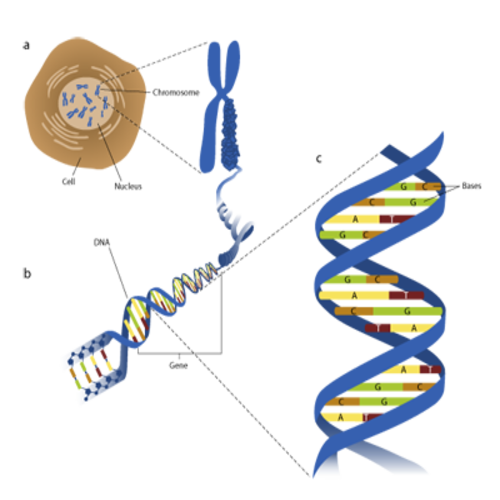 Downs Syndrome (Trisomy-21)
Downs Syndrome (Trisomy-21)
Also Known As: Trisomy 21
Why the Test is Needed?
To screen Down syndrome during pregnancy, diagnose it in a fetus or newborn, detect any malformations or complications that will require medical interventions shortly after birth, and monitor the person who has Down syndrome for complications throughout his or her life.
Description:
Down syndrome is a genetic condition that results when there is an extra copy of a specific chromosome, chromosome 21. Down syndrome (DS or DNS), also known as trisomy 21. It is typically associated with physical growth delays, characteristic facial features, and mild to moderate intellectual disability.
It is not an illness but a term that describes the features resulting from this change. The extra chromosome can affect the physical features, intellect, and overall development of an individual. Like as, low muscle tone, small stature and short neck, flat nasal bridge, respiratory problems, hearing difficulties, epilepsy, thyroid conditions.
Reasons for Referral:
When pregnancy screening tests are abnormal; whenever signs of a chromosomal abnormality-associated disorder are present; as indicated to detect Down syndrome in a person and/or detect a specific abnormality in family members.
Sample Requirement:
Whole EDTA blood
Fetus before birth. This is done through either:
-
Chorionic vilius sampling, which takes place about 11 weeks into pregnancy.
-
Amniocentesis, which is usually done about 16 weeks into the pregnancy.
Test Preparation
No test preparation is needed.
Test Done by
QFPCR (Quantitative Fluorescence-Polymerase Chain Reaction)
Also Known As: Trisomy 21
Why the Test is Needed?
To screen Down syndrome during pregnancy, diagnose it in a fetus or newborn, detect any malformations or complications that will require medical interventions shortly after birth, and monitor the person who has Down syndrome for complications throughout his or her life.
Description: Down syndrome is a genetic condition that results when there is an extra copy of a specific chromosome, chromosome 21. Down syndrome (DS or DNS), also known as trisomy 21. It is typically associated with physical growth delays, characteristic facial features, and mild to moderate intellectual disability.
It is not an illness but a term that describes the features resulting from this change. The extra chromosome can affect the physical features, intellect, and overall development of an individual. Like as, low muscle tone, small stature and short neck, flat nasal bridge, respiratory problems, hearing difficulties, epilepsy, thyroid conditions.
Reasons for Referral: When pregnancy screening tests are abnormal; whenever signs of a chromosomal abnormality-associated disorder are present; as indicated to detect Down syndrome in a person and/or detect a specific abnormality in family members.
Sample Requirement:
Whole EDTA blood
Fetus before birth. This is done through either:
- Chorionic vilius sampling, which takes place about 11 weeks into pregnancy.
- Amniocentesis, which is usually done about 16 weeks into the pregnancy.
Test Done by
QFPCR (Quantitative Fluorescence-Polymerase Chain Reaction)
